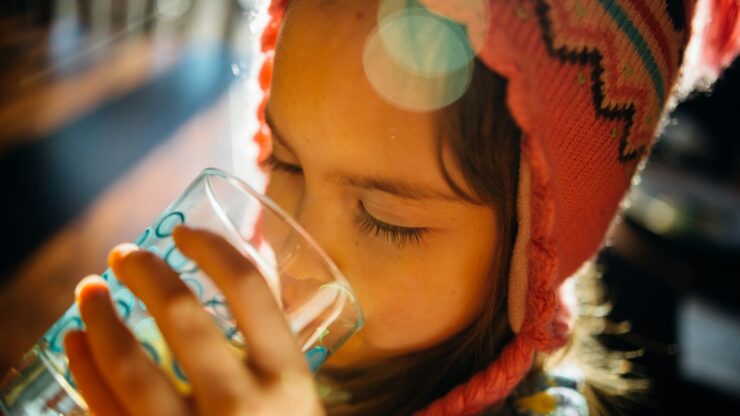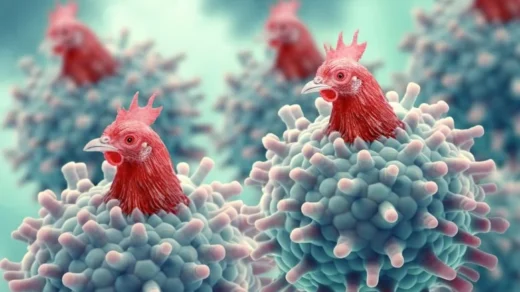Water is a ubiquitous and vital component of not just the Earth, but of the human body itself, comprising 55-60% of an average adult’s composition. From cushioning joints to regulating temperature, its role is indispensable for survival and optimal bodily function. Understanding how the body processes, utilizes, and eliminates water is crucial for appreciating its profound impact on health.
How Quickly Does the Body Absorb and Eliminate Water?
Water absorption is a remarkably rapid process. It can begin within minutes of ingestion, typically peaking around 20 minutes after drinking. Once you drink it, the body’s kidneys work continuously, producing urine to swiftly eliminate any excess water they do not require. This rapid processing means that water passes through the body much faster than solid food, which can take approximately 28 hours to move through the digestive tract.
How Does Water Digestion Differ from Other Liquids and Solid Food?
The digestion of water is notably distinct from that of other liquids and solid foods due to its simple composition. The digestive tract processes water in a shortened manner, meaning not every digestive organ needs to be heavily involved. Upon consumption, water quickly enters the stomach and passes to the small intestine, where the bloodstream absorbs nearly all of it. The large intestine (colon) also absorbs some water.
Unlike other liquids that may contain carbohydrates, dyes, fats, or proteins, water requires very little for the body to change or break down before absorption. For instance, simple liquids like tea and juice generally take about 30 minutes to digest and absorb, while more complex liquids like bone broth can take an hour or more.
Solid foods undergo a much more intricate and lengthy process. For example, a sandwich requires enzymes in the mouth for initial breakdown, passage through the esophagus, further breakdown by stomach acid, and then absorption of its various components (carbohydrates, sugars, fats, proteins) in the intestines. The body then forms any unabsorbed material into feces after it passes through the colon. For water, the body bypasses many of these steps, making its processing a simple filtration rather than a complex digestive breakdown.
What is the Role of Water in the Human Body?
Water is fundamental to numerous bodily functions. Depending on factors such as location, fat index, age, and sex, the average human is 55-60% water, with infants being even wetter at 75% water at birth. Water’s key roles include:
- Cushioning and lubricating joints.
- Regulating body temperature.
- Nourishing the brain and spinal cord.
Beyond these, water is integral to many daily bodily processes. You won’t just find it in blood; an adult’s brain and heart are almost three-quarters water, lungs are 83% water, and even bones contain 31% water.
How Does the Body Regulate Water Levels?
Maintaining a balanced water level is crucial, as both too little (dehydration) and too much (over-hydration) can have severe health consequences. When the body detects low water levels, sensory receptors in the brain’s hypothalamus signal the release of an antidiuretic hormone. This hormone travels to the kidneys, where it facilitates the creation of aquaporins—special channels that allow blood to absorb and retain more water, leading to the production of concentrated, dark urine. Conversely, if the body has too much water, the brain reduces or stops the release of this antidiuretic hormone.
What are the Effects of Dehydration and Over-hydration?
Both extremes of hydration can adversely affect health:
- Dehydration: Even mild dehydration can cause notable drops in energy, mood, skin moisture, and blood pressure. It can also lead to signs of cognitive impairment, making the brain work harder to achieve the same tasks and potentially causing it to temporarily shrink due to a lack of water.
- Over-hydration (Hyponatremia): This condition typically results from consuming an excessive amount of water in a short period. Athletes are particularly susceptible due to challenges in regulating water levels during intense physical activity. Over-hydration dilutes sodium electrolytes in the body, causing cells to swell. In severe cases, the volume of dilute urine may overwhelm the kidneys, leading to water intoxication. Symptoms can include headache, vomiting, and in rare instances, seizures or even death.
What Factors Affect Water Passage and Digestion Time?
While the body absorbs water quickly, several factors can influence the overall time it takes for substances, particularly food, to pass through the body:
- Metabolism: Individual metabolic rates vary, meaning some bodies naturally take longer to digest and eliminate food.
- Diet: The type and quantity of fiber, as well as the starchiness and softness of foods, affect how quickly they move through the digestive system.
- Health History: Existing health conditions, such as irritable bowel disease (IBD) and colitis, can alter normal digestive rhythms.
- Past Surgeries: Certain digestive conditions, such as dumping syndrome, which can occur after stomach surgery, may impact digestion speed.
- Activity Level: Physical activity and exercise can influence how quickly the body breaks down and digests food.
How Does Water Leave the Body?
Water leaves the body through multiple pathways, not exclusively via urination. After absorption, cells and blood incorporate a portion of the water. The body excretes excess water through:
- Urine: The kidneys filter and process water, expelling much of it as urine.
- Sweat: The body releases water as sweat to help regulate body temperature, particularly during physical exertion or in warm environments.
- Stool: Feces contain a certain amount of water, which contributes to their mass and facilitates their exit from the body.
Humans lose an average of two to three liters of water daily through sweat, urine, bowel movements, and even respiration, necessitating consistent fluid replenishment.
How Much Water Do We Need, and What are the Long-Term Benefits of Hydration?
Experts have refined the long-held advice of drinking eight glasses of water a day. The current consensus is that the amount of water an individual needs largely depends on their weight and environment. Recommended daily intake typically ranges from 2.5-3.7 liters for men and 2-2.7 liters for women. You can adjust this range upwards or downwards based on factors such as general health, activity levels, age, or whether you are overheating.
While water is undoubtedly the healthiest hydrator, other beverages, including those with caffeine like coffee or tea, also contribute to fluid replenishment. Furthermore, the water in food accounts for approximately a fifth of our daily H₂O intake. Fruits and vegetables, such as strawberries, cucumbers, and broccoli, are over 90% water and provide not only liquid but also valuable nutrients and fiber.
Researchers have linked optimal hydration to various potential long-term health benefits, including a lower chance of stroke, assistance in managing diabetes, and a potential reduction in the risk of certain types of cancer. Ultimately, ensuring adequate liquid intake makes a significant difference in one’s daily feelings, thoughts, and overall functioning.





















